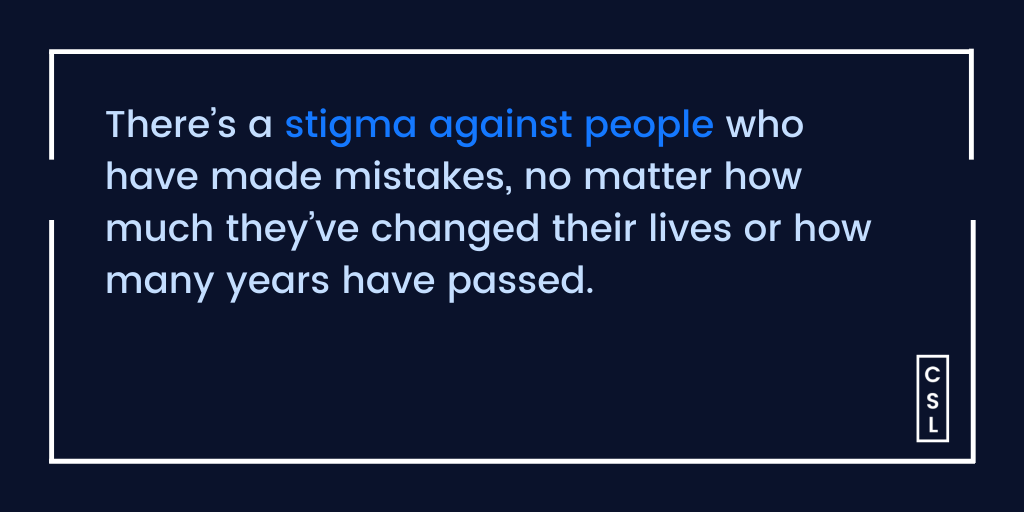The Real Consequences of a Criminal Record
It’s a misconception that people finish paying for a mistake when their criminal sentence ends. In reality, the consequences can last much longer than the possible jail time, fines, and probation term. For years or decades after a conviction, you may still suffer from financial and psychological consequences. You may also face discriminiation, limited options for employment, and trouble finding suitable housing.
We’re passionate about expungement law because it helps people move past their mistakes and wipe away any collateral consequences they’re facing.
In this article, we’ll discuss some of the challenges that people face years after their convictions, plus how an expungement can wipe away the consequences of your mistake, once and for all.
What Are Collateral Consequences?
According to the National Inventory of Collateral Consequences of Conviction, collateral consequences are “legal and regulatory restrictions that limit or prohibit people convicted of crimes from accessing employment, business and occupational licensing, housing, voting, education, and other rights, benefits, and opportunities.”
Collateral consequences can include:
Restrictions against felons owning firearms
Not granting a CDL license to someone convicted of a DUI
Limiting the ability of employers to hire workers with certain convictions
Restricting business licenses for those who want to be self-employed
Limited housing options because of prejudices against those with a criminal record
The complicated web of consequences imposed outside of a person’s court sentence can vary in scope, length of time, and severity based on the type of criminal offense.
Employment Consequences
According to the Russell Sage Foundation, a past incarceration will “fundamentally alter an individual’s employability through gaps in work history, loss of job skills, and the loss of the informal social networks often pivotal for landing employment.”
People with felony convictions may be automatically excluded from some career fields, including medical jobs, barbering or beautician services, law enforcement, and even public office or civil service positions.
Even those with just a misdemeanor conviction may struggle to pass a background check. Whether it’s company policy or employer bias, many companies are simply unwilling to knowingly hire someone with a criminal record.
Emotional and Psychological Consequences
Not everyone faces the restrictions listed above, but that doesn’t mean that the impact of a conviction disappears as soon as your probation ends.
For many people, having a criminal record becomes a heavy weight as they move past their mistakes and build a new life. Anyone with access to the internet could potentially look at public court records to learn about your past conviction. The worry of being “discovered” often intensifies as you move further and further away from the person you used to be.
Many people have preconceived ideas about the type of person who would have a criminal record.
With an expungement, you can rewrite your story. In your new story, you’re not a convicted felon or a person with a criminal record.
Benefits of an Expungement
After receiving an expungement, you can legally deny that the incident ever happened. You no longer have to disclose it on job applications and it should no longer hold you back from professional licenses.
Most importantly, an expungement removes the weight of your mistake and erases the stigma of your criminal record. If you’re ready to invest in yourself and your future, then take our free Expungement Eligibility Quiz to see if you’re eligible for an expungement in Oklahoma.





